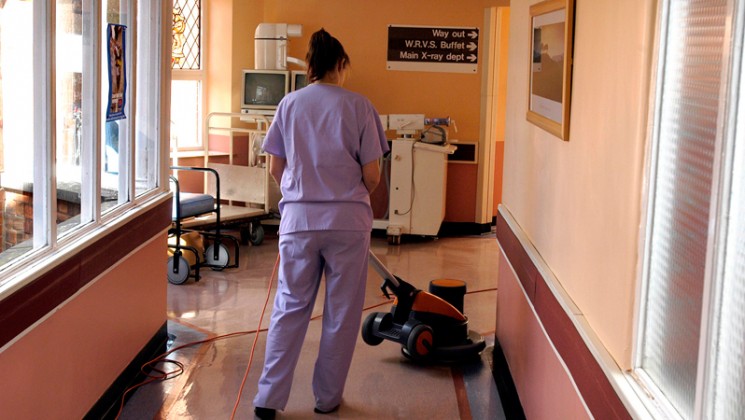
Agency and temporary workers
Employment businesses (recruitment agencies) use agency (often referred to as temporary workers or temps) to fill vacancies in companies. Recruitment agencies generally enter into a contract with the worker and then place them with a hiring company. Agency workers do not have the same rights as employees of the hiring company.

Call centre workers
Call centre workers often have demanding performance targets and call standards are closely monitored, making their work challenging. UNISON is campaigning to improve pay and conditions for members who work in call centres.

Migrant workers
We offer and support migrant workers and their rights at work. We also offers free immigration advice via our phone line.

Young workers
As a young worker, you are protected by the law and have many of the rights of an adult worker. There are a number of significant differences between your entitlements and those of older workers.
On this page:
Vulnerable workers: an introduction
Vulnerable workers are employed in low-skilled, low-paid jobs with little job security. They are often exploited by their employers and forced to work long hours for low pay, or to work in dangerous conditions. Vulnerable workers may not know or understand their employment rights, or they may be afraid to challenge their employers when treated unfairly.
Some groups of people are more likely to be treated unfairly than others. Vulnerable workers are often women, disabled workers, young or older workers, migrant workers, or workers from ethnic minorities.
Minimum wage
The national minimum wage for workers aged 25 and over is £7.50 an hour. This is the lowest you can be paid for each hour you work. The minimum wage is less if you are under 25.
Working hours
You do not have to work more than 48 hours a week (on average) unless you sign an agreement to do this. You have the right to cancel this agreement, but you must give your employer seven days’ notice in writing.
Deductions from your pay
Any money that is taken from your pay must be clearly listed on your payslip. You should receive a payslip before or on the day you are paid. Your payslip should also show the amount taken for tax and national insurance.
Protect yourself from being exploited
There are things you can do to protect yourself at work and make sure you get paid correctly and treated fairly:
- get the terms of your employment in writing if possible. Check that this written statement includes your pay rate, the hours you must work, holiday leave and sick pay;
- make sure you understand your terms before you sign them;
- write down all the hours that you work so that you have an accurate record;
- learn about your employment rights so that you know when your employer is acting illegally;
- write down the details of any accidents or events at work where your employer does not treat you fairly;
- speak to UNISON to find out what you can do if your employer is not paying you correctly or respecting your basic employment rights. You may be able to take your employer to an employment tribunal or start a grievance procedure.
Did you know?
Vulnerable workers are employed in low-paid, low-skilled jobs. They are often exploited by their employers and are either unaware of their employment rights or are too scared of losing their job to stand up to their employers.
- Vulnerable workers usually work in low-paid, low-skilled jobs.
- There are an estimated two million vulnerable workers in Britain.
- Not knowing or understanding your employment rights makes you more vulnerable to exploitation.
Getting help
As a member of UNISON, start by speaking to your UNISON rep if you think that you are being exploited. Your rep will be able to tell you what you should do next. If you do not know who your rep is, call UNISONdirect on 0800 0 857 857.
If you think you are being paid incorrectly or treated unfairly by your employer you can call the Pay and Work Helpline (0800 917 23 68). They can give you information and answer your questions in more than 100 languages.
If you think that your employer is not paying your national insurance contributions you can check by calling the National Insurance Contribution office on 0845 302 1479.
Next steps for UNISON reps
Launch an awareness campaign. Help make contract or agency workers in your organisation aware of their rights and of how UNISON can help to protect them.
Think you’re not being paid fairly?
Call the National Pay and Work Helpline on 0800 917 23 68 or speak to your UNISON rep if you are being paid less than the national minimum wage.
FAQs
Vulnerable workers
-
Can my employer charge me for equipment that I use to do my job?
If you work for a gangmaster they can’t charge you for any personal protective equipment that you need to do your job. If you work for an agency they can’t charge you for equipment or uniforms unless you have a signed agreement that allows them to. In any event you must still be paid national minimum wage after such charges have been made.
-
Do I have to pay national insurance even if I am paid the minimum wage?
Yes, everyone working in the UK must pay National Insurance.
-
Do I have to work all the hours my employer tells me to?
Your employer should not ask you to work more than an average of 48 hours each week. You can only work more than 48 hours a week if you agree to this in writing.
-
What can I do if I am not being paid fairly?
Call the National Pay and Work Helpline on 0800 917 23 68 or speak to your UNISON rep if you are being paid less than the national minimum wage.

